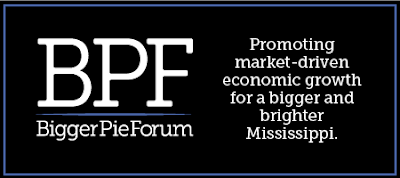This post is reprinted with permission of the Taxpayers Channel (Greenwood). It was first published on February 22.
Early this morning, the United States Federal District Court of the Northern District of Mississippi filed and accepted a guilty plea agreement by former Express Grain president John Coleman for fraud in the company's collapse and bankruptcy.
The plea agreement was actually signed on February 8 by United States Attorney Clay Joyner, John Coleman, and his defense attorney John Colette.
The plea agreement may be seen here: John Coleman Guilty Plea Agreement
In November 2022, Coleman was charged with multiple counts of fraud (in both state and federal courts) relating to allegations he tampered with and falsified critical financial audit reports that he then provided to the Mississippi Department of Agriculture and Commerce in order to gain license renewals for the Express Grain operations.
Additionally, Coleman was charged with providing the fake audit reports to UMB Bank, the chief lender to Express Grain. He also is alleged to have provided falsified inventory reports to UMB Bank, upon which EG's line of credit was based.
Finally, Coleman was charged with providing false information to local farmers about the stability of EG, in order to induce them to deliver their grain to the company.
When certain of these false reports and statements were discovered, EG collapsed in bankruptcy. See our previous reporting here: John Coleman set to change his not guilty plea in his federal criminal fraud case in the Express Grain collapse
According to the plea agreement, Mr. Coleman is pleading guilty to one count of fraud:
The defendant agrees to plead guilty under oath to Count One of the Indictment, which charges that the defendant, JOHN R. COLEMAN, did devise and intend to devise a scheme to defraud Farmers, UMB Bank, and the Mississippi State Board of Agriculture, and to obtain money by means of false and fraudulent pretenses, representations and promises and for the purpose of executing and attempting to execute part of the scheme to defraud, knowingly caused to be transmitted by means of wire communication in interstate commerce, a writing, sign, and signal in violation of Title 18, United States Code, Section 1343. . . .
The plea agreement includes a listing of the possible maximum penalties:
. . . [it] carries maximum possible penalties of not more than 30 years imprisonment, not more than 5 years supervised release, not more than $1,000,000 fine, a special assessment of $100 and restitution as appropriate.
In exchange for this guilty plea, the government will dismiss other charges at a later date:
The United States agrees not to charge the defendant with any other offenses arising from or related to the above charge and agrees to dismiss all other charges in the Indictment upon the conclusion of sentencing on Count One.
As far as restitution is concerned:
The defendant understands that the Court may order restitution in accordance with the provisions of 18 U.S.C. Section 3663 for all offenses committed and specifically agrees that restitution is not limited to the count of conviction.
The plea agreement does not prohibit the government from pursuing certain other possible charges:
This agreement does not bind any prosecuting authority of any state or any other federal district, nor does it bind the Attorney General of the United States with regard to any matter, criminal or civil, involving federal tax laws. Nor does this agreement bind the United States or any of its departments or agencies with regard to any civil or administrative actions or remedies.
If defendant violates this agreement, all statements made pursuant hereto will be admissible against defendant, who hereby waives the provisions of Rule 11(f) of the Federal Rules of Criminal Procedure and Rule 410 of the Federal Rules of Evidence. Defendant may also, in that event, be prosecuted for all federal offenses, including perjury and false statements relating to this plea agreement.
According to the plea agreement Coleman signed,
Apart from being advised of the applicability of the U.S. Sentencing Guidelines, and other than as set forth elsewhere in the plea documents, no promise or representation whatsoever has been made to defendant as to what punishment the Court might impose if it accepts the plea of guilty. This agreement fully reflects all promises, agreements, and understandings between the defendant and the United States Attorney.
The defendant's agreement is knowing, free, and voluntary, and not the product of force, threat, or coercion.
The final statement in the agreement signed by Mr. Coleman reads as follows:
The defendant is pleading guilty because defendant is in fact guilty.
The entire hearing lasted 20 minutes. The court filing does not indicate that John Coleman was actually present at the hearing. The minutes of the hearing may be seen here: Criminal Minutes of February 22, 2024 Acceptance of Guilty Plea hearing
Coleman remains free on bond pending sentencing, which is set for June 13, 2024. The sentencing schedule may be seen here: Order Setting Sentencing and Deadlines


























6 comments:
My neighbor recieved a check from Express Grain bank last month. They sent him $6. Wonder if he will ever see the $48K they owe him...
He might want to invest that Money in Soybean futures.
Attn 5:42 PM, that
$6.00 dollar check may have had a disclaimer hidden in the minutia that releases the payer of addition liability. I would not cash it.
They get to keep the millions that are missing. His family can live off that until the end of time. He will likely only serve a few years if even that long.
There is more than a grain of truth in that plea agreement.
Learn more about Greenwood here:
https://www.facebook.com/100003314185670/posts/pfbid0Mvdw1d55AJb28kqcQfDD7fhGNAq1N6hGRrJKfU7SfAUEGouWrrC2majaSJuANDNtl/?
Post a Comment